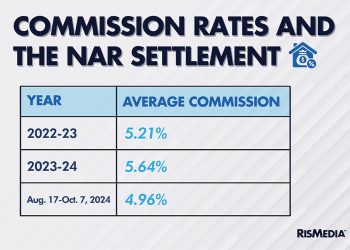RISMEDIA, October 28, 2010—If you listen closely, there is a thumping, an underscore that can be heard in virtually all conversations happening within the MLS community; just like the bass line of a great rock and roll song—driving the tempo, defining the energy, making it stick in your head for hours. That MLS bass-thump you’re hearing is about thriving in the coming decade. It’s getting louder and sticking in our heads. As a matter of fact, it’s more like its very own genre station on Pandora.
Look no further than the recent CMLS conference in Chicago and some of the key business questions that were posed to ponder; check out the high-level agenda for the upcoming 2011 Clareity and Inman conferences. As an industry, we’re spending much of our time engaged in assessing and defining our future; analyzing roles, business models, infrastructure, revenue structures, key investments, decision making and more. We’re diving into how our business and our customers are defined and looking to others who innovate. Although we are an industry steeped in policy and administration, we can somehow make strategy a priority. Moreover, we can follow through on strategy with action and deliver value for members and consumers. In totality, we’re deconstructing a decade (plus) old business model that in some ways lacks relevance and sustainability in today’s environment. A lot of work, no?
In my experiences working closely with MLS leaders, technologists and administrators in the last 18 months, I have seen a lot of change—marked definitively by the launch of RPR and CoreLogic offerings. First, MLSs are “owning” the role as the primary source, the leaders in listing data. They often discuss and inquire about incorporating the deep neighborhood information that my company, Onboard Informatics provides as part of the listing record within their existing member system, recognizing that the agent system is the business system used by virtually 100% of all members, regardless of any third party tool available. They are thinking deeply about improving member value proposition by delivering related tools that help the members do business more effectively and efficiently. They are seeing the value of wrapping localized demographics around listings, enhancing available school data; truly providing members with an arsenal of local information to meet the super-informed-clients that await.
Additionally, more and more MLSs are recognizing the need and member value of an MLS consumer facing website; again, embracing the role and the power of being the primary source of accurate listing data.
It is possible to deliver more qualified leads to members with a well-tooled MLS listings website. It’s also possible to turn that website into a revenue generator that fuels the MLS coffers with more cash to spend and share improving their member’s businesses. And once again, Onboard Informatics can help with website enhancements that range from enabling search by neighborhood to implementing a search platform that allows a user to find a place to live by the lifestyle criteria that matter to them. These tools play into positioning the MLS as the authority of local and home information. More importantly, Onboard’s informational tools provide agent members with the tangible expertise required to meet the well-informed consumers’ needs, removing the burden from the clients while simplifying their own processes.
But all of this positivity doesn’t come easy; I’m not trying to oversimplify here. There are undeniable hurdles to jump and barriers to overcome. It would be wonderful if it was as simple as “embracing the role” and charting a course. This industry has a lot to do and I’ll summarize with the following.
As mentioned previously, many MLS infrastructures and operations are archaic. Many must evaluate and probably re-engineer (at least some of) their existing organization. Goals and objectives must be aligned with the current business model and environmental factors. Personnel in all positions (this includes Governing Body and Board of Directors) must possess the appropriate experience, skill-set and objective and informed decision making capabilities needed to steer the business into a sustainable future. This could mean bringing in fresh blood in the form of consultants or talent from other industries. Bottom line is that the right players are required to assess, implement/develop and then deliver the tools that foster constituent and customer value.
It’s time to focus our energy on what we can do as a community within the next year to partner with MLSs as they make critical changes that impact the futures of many. I am not suggesting we debunk the standout role of the MLS, which is to deliver clean listings data. All this talk of change, innovation, and strategy is not about redefining our strengths; rather it’s time to build upon them in a way that benefits today’s MLS members and consumers. Increasing agent productivity and client value, driving more business to members, and giving agents the edge with technology solutions in a world where the consumer is armed to the teeth with information.
2011 will be an exciting year for progressive movement within the MLS community.
Kim Cipriano Prior is the director of MLS Market Development for Onboard Informatics. She has 12+ years of experience within real estate marketing/communications, technology, strategic business development and e-commerce and 15+ years experience in comprehensive sales, leadership and market management roles for both public and private sectors, mid-size to Fortune 500 organizations.
Since 2001, Onboard Informatics has offered powerful online tools that have enabled companies to drive traffic, keep and convert visitors, and understand behaviors, while also providing opportunities for businesses to stay in contact with these customers. For years, Onboard has provided comprehensive local, regional and national real estate data solutions, and powerful Web services to some of the most innovative companies in real estate, publishing, and technology. Onboard delivers seamless integration of real estate property listings, lifestyle search parameters, community, school, neighborhood, geographic and demographic information, and transforms the complexity of this data into meaningful solutions. Onboard’s advanced technologies support clients in achieving business objectives on both Web and mobile platforms.
For more information, visit www.onboardinformatics.com.









